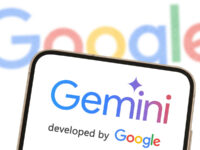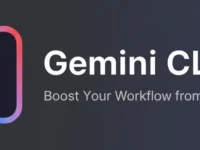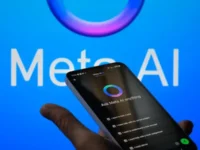Publié : 19 September 2025
Actualisé : 1 month ago
Fiabilité : ✓ Sources vérifiées
Je mets à jour cet article dès que de nouvelles informations sont disponibles.
💰 Gemini, Google’s AI, Arrives in Chrome
Google has integrated its artificial intelligence, Gemini, into its Chrome browser on Mac and Windows in the United States. Initially reserved for Google AI Pro and AI Ultra subscribers, this new feature is now accessible to a wider audience, marking a significant step in Google’s AI deployment strategy.
The Gemini integration transforms Chrome into a true personal assistant capable of performing complex tasks such as booking restaurants or organizing trips. This development is part of Google’s strategy to democratize access to artificial intelligence and make it ubiquitous in users’ daily lives. This shift reflects a broader trend in the tech industry towards more personalized and proactive digital experiences.
The arrival of Gemini in Chrome raises questions about data privacy and security. Google assures that measures are being taken to protect user information, but it is important to remain vigilant about the use of these technologies. Independent security reviews and ongoing monitoring will be crucial to ensuring user trust and responsible implementation.
💰 Chrome Transforms into a Personal Assistant
Gemini, accessible via an icon at the top right of the browser, allows you to summarize web pages, explain concepts, and generate text without leaving the tab. This feature simplifies navigation and access to information, allowing users to save time and optimize their productivity. This streamlined approach to information processing has the potential to revolutionize online research and content creation.
On a recipe page, for example, Gemini can adapt the recipe to a specific diet. For students, the AI can centralize and synthesize information from multiple tabs, facilitating research and learning. These examples illustrate the versatility of Gemini and its potential to transform the daily use of the browser. The implications for education and accessibility are particularly noteworthy.
Integrating Gemini into the Omnibox, Chrome’s address bar, allows for instant answers and smart suggestions without leaving the search bar. This feature transforms Chrome into an integrated conversational engine, providing a more intuitive and interactive browsing experience. This development blurs the lines between search engine and personal assistant, creating a more seamless and integrated online experience.
💰 Ambitious Features for the Future
Google promises even more ambitious features for Gemini in the coming months, including the possibility for the AI to perform actions on behalf of the user, such as booking a restaurant, organizing a trip, or ordering groceries. This “agentive” approach aims to transform Chrome into a true personal assistant, anticipating user needs and simplifying their daily tasks. The ambition is clear: to make Chrome a central tool in managing digital life. This vision aligns with the growing trend of automation and personalized digital experiences.
Google also announced the upcoming arrival of Gemini on iOS and Android, as well as its availability for businesses via Google Workspace. This multi-platform deployment demonstrates Google’s desire to make Gemini a technology accessible to everyone, regardless of the operating system used. Companies will also be able to benefit from the power of AI to improve their productivity and collaboration. The integration with Google Workspace has the potential to significantly impact workplace efficiency and communication.
Despite Google’s promises, no deployment date has been announced for other regions. Therefore, users outside the initial launch area will have to wait to fully enjoy Gemini’s features in Chrome. The global rollout timeline remains unclear, and international users are eager to experience this new technology firsthand.
“The integration of AI into web browsers marks a new era in information access and online productivity.” – Sundar Pichai, CEO of Google.
❓ Frequently Asked Questions
How does Gemini’s integration into Chrome concretely impact user data security, beyond Google’s general statements?
Why did Google choose to deploy Gemini first to paid subscribers before extending it to all Chrome users?
What are the consequences of Gemini’s integration into the Omnibox on the use of traditional search engines?
Is the claim that Gemini ‘transforms Chrome into a true personal assistant’ really justified at this stage, or is it primarily a marketing argument?
🎥 Explanatory Video
Video automatically selected to enrich your reading





















0 Comments